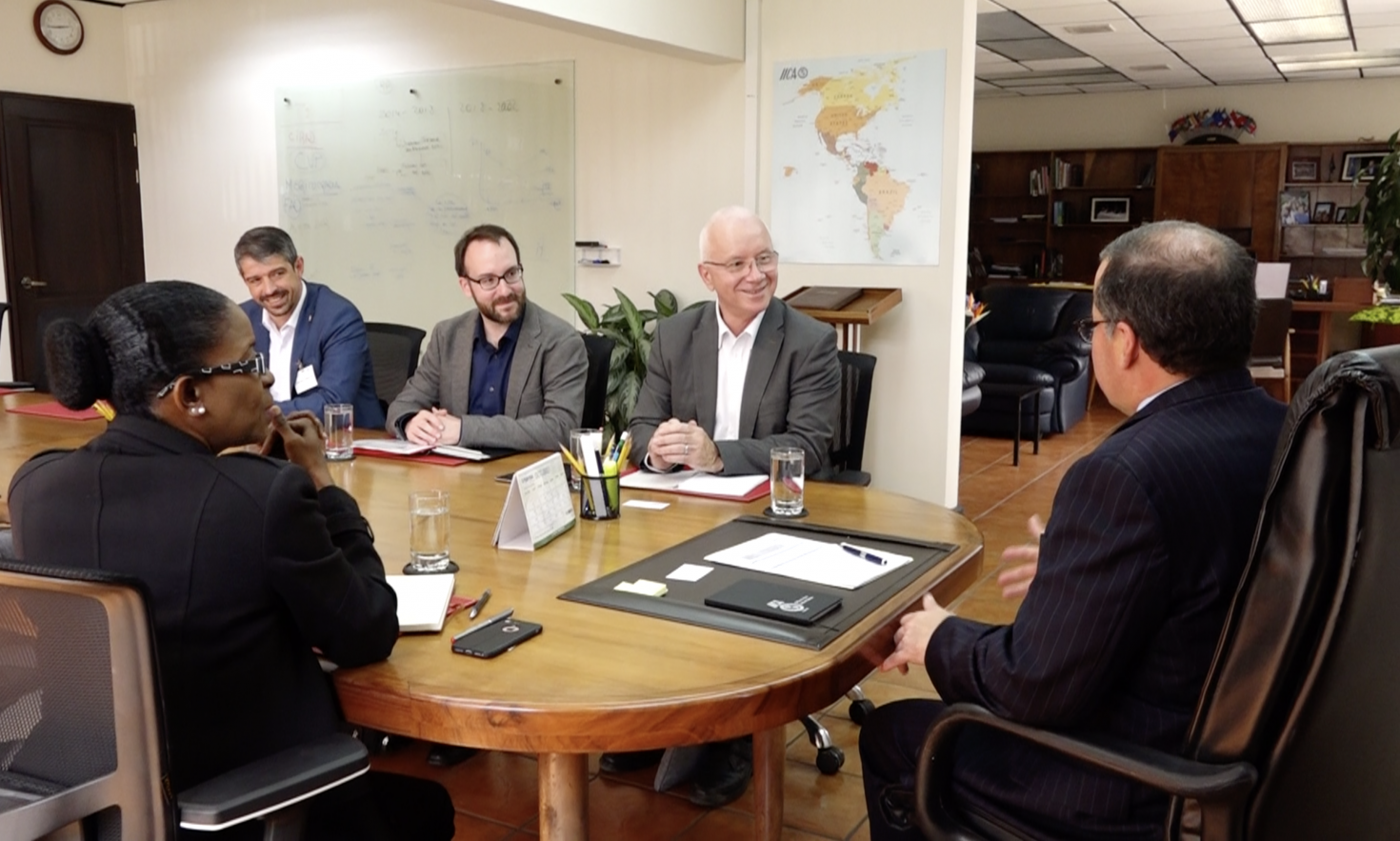The head of agriculture in Switzerland met with senior IICA personnel. The European country has eight commercial agreements with countries in the region, and is currently engaged in negotiations with MERCOSUR.

San Jose, 13 February 2019 (IICA). The Secretary of State and Director General of the Federal Office for Agriculture of Switzerland, Bernard Lehmann, visited the headquarters of the Inter-American Institute for Cooperation on Agriculture (IICA). Together with authorities of the international organization, he explored opportunities for cooperation in the field of agriculture, for the benefit of countries in Latin America and the Caribbean (LAC). He also underscored the importance of transforming the manner in which food is produced, in order to protect the environment.
The European country’s extensive farming tradition and technological resources, in addition to its spirit of cooperation, afford a valuable opportunity to complement IICA’s efforts to drive the production development of agriculture.
Lehmann met with Lloyd Day, Deputy Director General of the Institute; Federico Villarreal, Director of Technical Cooperation; and Beverly Best, Director of External and Institutional Relations, in order to strengthen ties with countries across the hemisphere, promote sustainable food systems, and define actions related to knowledge and technology transfer.
“There are cooperation opportunities in the field of agricultural research. Applied research represents the first step in order to achieve progress in this regard. We can learn from one another, aiming to identify mechanisms to produce with greater quality and to overcome the challenge of adapting to climate change. We face similar issues with respect to agriculture; ecological problems are universal, and we have limited resources to allocate to research,” stated Lehmann.
On the other hand, Day noted, “Switzerland has provided IICA with valuable cooperation. Our goal is to work together with the country’s government to develop initiatives based on common interests, which would allow for generating mutual benefits, strengthening the agriculture sector across the hemisphere and improving our food systems.”
Switzerland has commercial agreements with Mexico, Chile, Canada, Colombia, Peru, Panama, Costa Rica and Ecuador, and is currently in negotiations with MERCOSUR and maintains business relations with the United States, the latter of which is its second most important trade partner, after Germany.
Among the main agricultural and agroindustrial products that the European country imports are wine, fruits and coffee, which offers significant opportunities for producers in the Americas.
“Agriculture in Switzerland and Europe, as well as in Latin America and the Caribbean, is based on family farming. There are many different ways in which we could cooperate, aiming to transform the manner in which we produce and consume food in order to guarantee the productivity of our ecosystem for future generations,” concluded the Swiss secretary.
More information:
Institutional Communication Division
comunicación.institucional@iica.int










